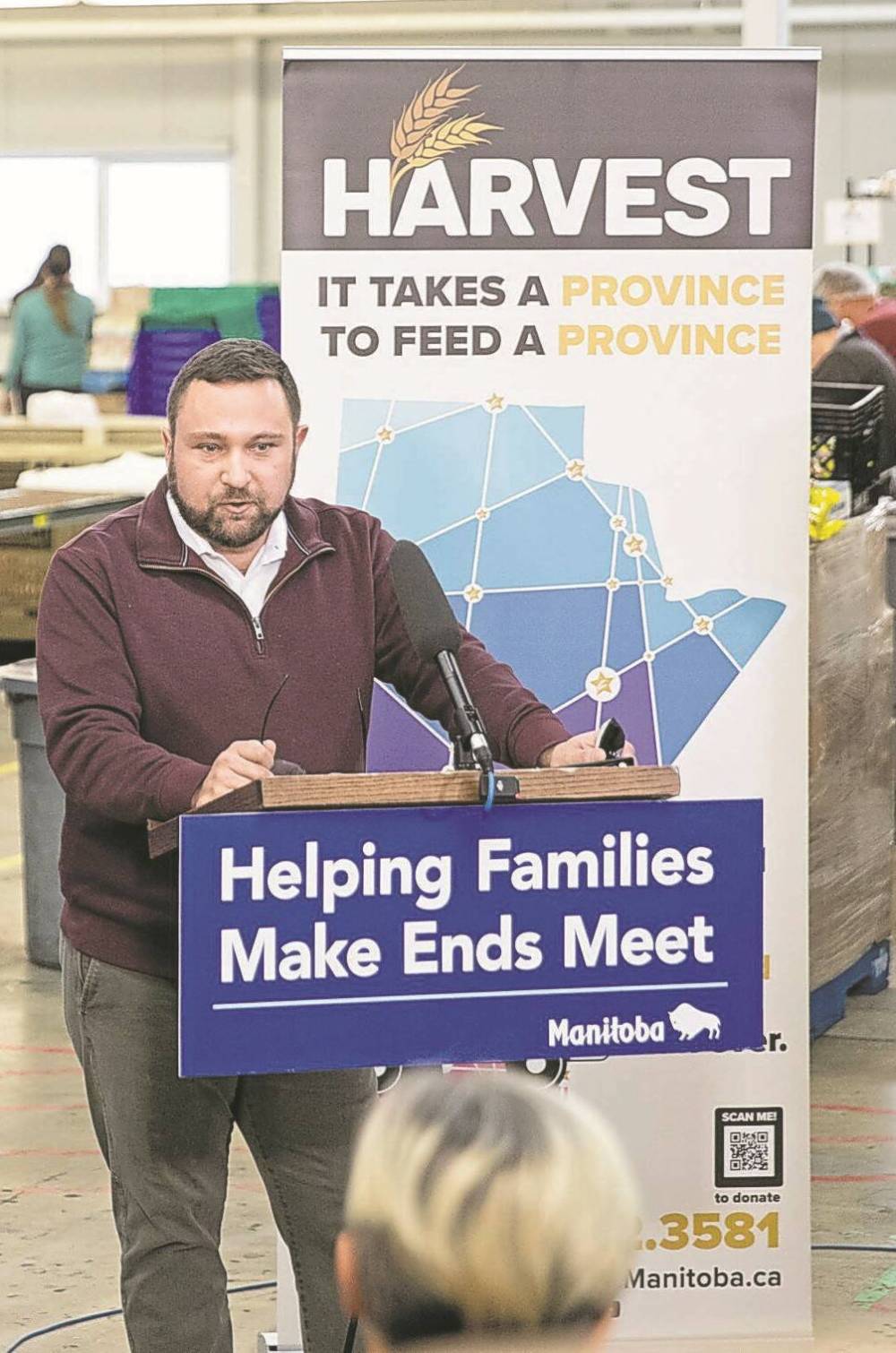Harvest Manitoba has commissioned a feasibility study on creating a “food transformation centre” that would turn produce destined for landfills into meals for people in need.
The organization’s 2023-24 impact report, released today, states Harvest “rescued” and distributed 9.2 million pounds of food at a value of $32 million over the last fiscal year.
CEO Vince Barletta described Harvest’s food rescue efforts as taking food from grocers, wholesale stores, farmers, food processors and other donors that “otherwise was going to be destined for a landfill or a compost heap.”

Vince Barletta, CEO of Harvest Manitoba
A feasibility study by firm MNP will consider how food transformation could be expanded at Harvest, which could include buying equipment to better preserve, prepare, process, store and dehydrate food being rescued from landfills.
It’s a “new frontier” for food banks in Canada facing skyrocketing need from clients, Barletta said.
“Last year, we spent over $2 million buying food. That’s not terribly sustainable,” he said.
“So we need to find ways to get food from Manitoba, from across the whole agri-food chain, that today we don’t have the infrastructure to handle and distribute. Let’s get the infrastructure so we can handle it and distribute it, keep it out of landfills and put it on kitchen tables.”
A 2019 report from Environment and Climate Change Canada stated that about 20 per cent of all food produced in Canada is wasted through avoidable methods.
Harvest Manitoba will report back on the feasibility study next year.
The majority of people using food banks in Manitoba are adults and seniors, while the second-highest demographic is children, the impact report states.
Based on a monthly average from March 2023 to March 2024, 36 per cent of the people visiting food banks were youth.
The Harvest Meals2Go initiative, which provides students meal kits on weekends when they aren’t able to access their schools’ breakfast program, began as a pilot project in 2018 and has exploded in recent years.
In 2021, 2022 and 2023 there were 3,048, 6,330 and 8,370 children fed through the program, respectively.
The program is in six Winnipeg schools and one in Opaskwayak Cree Nation, and will be expanding in the coming school year, Barletta said.
“We know that even though there has been some movement on school nutrition, and the province has talked about it, and the federal government has talked about it … the reality is there are so many kids who need in-school nutrition, and need support at home with nutrition on the weekends and in the summer months, that simply aren’t getting the support they need, and it’s holding kids back,” he said.
Harvest Manitoba’s expanded programming will be life-changing for families with children using the service, said Kenny Jasper, a father from Nigeria who started using its food banks after he and his children came to Winnipeg beginning last April.
“Harvest Manitoba came at the nick of time for me. It was like a lifesaver, the first food I got,” he said Saturday.
Jasper volunteers with Harvest. A business management student, he said he hopes to eventually work with the organization, possibly in their food rescue sector.
“It’s going to really, really help a lot of people,” he said.
malak.abas@freepress.mb.ca

Malak Abas
Reporter
Malak Abas is a city reporter at the Free Press. Born and raised in Winnipeg’s North End, she led the campus paper at the University of Manitoba before joining the Free Press in 2020. Read more about Malak.
Every piece of reporting Malak produces is reviewed by an editing team before it is posted online or published in print — part of the Free Press‘s tradition, since 1872, of producing reliable independent journalism. Read more about Free Press’s history and mandate, and learn how our newsroom operates.
Our newsroom depends on a growing audience of readers to power our journalism. If you are not a paid reader, please consider becoming a subscriber.
Our newsroom depends on its audience of readers to power our journalism. Thank you for your support.